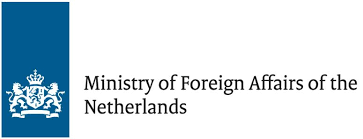Community / Land projects / Leading the Change: Civil Society, Rights and Environment: Africa Youth Thematic hub
Leading the Change: Civil Society, Rights and Environment: Africa Youth Thematic hub

€137142.1605
01/18 - 12/22
Completed
This project is part of
Implementing Organisations
Donors
Data Providers
General
Problem and context description
Africa as a continent is undergoing rapid economic development, resulting in an increasing pressure and demand on its natural resources which are diminishing at an alarming rate. The forest size in Africa has been drastically reduced over the last century, contributing to desertification and water scarcity. In many countries on the continent, access to clean drinking water is already a source for conflict amongst communities. In addition, the rate of urbanization in Africa poses an environmental challenge in waste management, access to water and sanitation facilities. Land degradation arises from land-use change and also from poor agricultural management practices. Reversing these trends is an imperative and involving young people in the process is critical.
The environmental risks and hazards facing Africa disproportionately affect the youth population who comprise 70 per cent of Africa’s population, as they compromise their chances to economic development and prosperity. In spite of the economic growth, the majority of Africa’s young still live in poverty. Young people in Africa often struggle to acquire an education that provides them with the right set of skills and knowledge. As a result, the transition from school to work is a major challenge such that many young Africans end up either unemployed or underemployed in the informal sector with little protection and prospects. At the same time, the youth are a strong force with a lot energy that can be tapped to bring about transformative change. They do form the majority of the civil society and their mobilization is needed to bring about change.
Many African countries have vivid civil societies. However, large sections of the African population lack the means or the possibility to benefit from the assistance extended to civil society by donors.
At the same time, many CSOs lack influence due to absence of suitable mechanisms for dialogue with governments. Some governments are unwilling to see CSOs as other than instruments for service delivery, and in some cases, the civil society is too weak in capacity to engage. Efforts to engage youth in policy formulation have increased over the past few years at all levels. Youth participation across Africa occurs through various fora, such as through youth organisations, national youth councils, and youth parliaments set up at the national or regional levels. However, few opportunities exist for active youth participation in decision-making processes due to limited skills, tools and resources among young people, limited mechanisms to represent their voices, and increasing marginalization, especially of indigenous youth. There is also noted gender disparity, as the public sphere where decisions are made remain a male domain. Youth-led organisations in the programme’s focus countries often have weak management structures.
There is a need for a comprehensive support that will ensure that the youth are empowered to contribute towards green economies in Africa while at the same time taking leadership roles in driving Africa’s conservation agenda. The Pan African Youth Strategy on Learning for Sustainability (WWF, 2013) noted that youth interventions should also tap into regional level opportunities represented by the Regional Economic Communities (REC). This is because these would provide opportunities for not only an expanded base for youth participation but also provide a tool to leverage and influence national sustainable development agendas.
Programme goal
The overall goal of the Youth programme is that:
Innovative youth-led actions drive policies and sustainable practices that enhance the integrity and ecological functionality of critical ecosystems and wildlife, address climate change and improve food, water and energy security in targeted countries.
Programme activities
The programme is built around four components: advancing policy, capacity building, green entrepreneurship development and networking platforms.
The programme will engage the African Union and other regional actors in advocacy for the adoption of the Pan African Youth strategy on Learning and sustainability, and facilitate the translation of the same strategy into national policies. It will further develop learning tools and establish online resource-base for learning materials related to ESD, for learning institutions and CSOs and individual young women and men. A network of national entrepreneurship development incubators and innovation centres around green jobs for youth involving both young men and women will be established, and the innovation centres will be linked to financial institutions and award schemes. The programme will also support Pan African Youth Networks and link them to relevant policy institutions at Africa and sub-regional level.
Objectives



